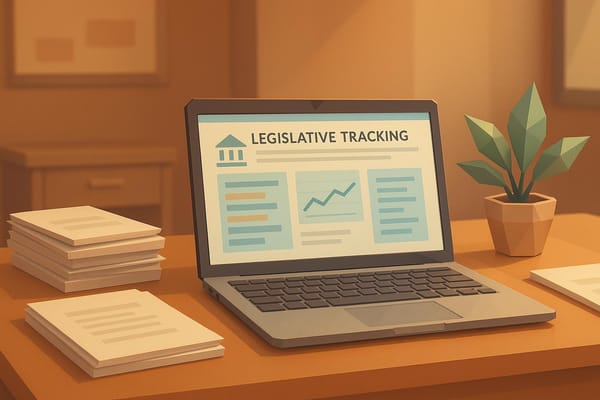Virginia's Bill for Local Journalism Support

The recent introduction of House Bill No. 961 in Virginia highlights a significant push towards bolstering local journalism through tax incentives. In a landscape where local newspapers face numerous challenges, ranging from declining revenues to the impacts of digital media, this bill aims to provide tangible support. By offering tax credits for both the compensation of local journalists and advertising in local media, Virginia seeks to ensure the sustainability of local news outlets. This initiative not only encourages the employment of local journalists but also stimulates local businesses to invest in these platforms, creating a symbiotic ecosystem.
This blog post will explore the main components of House Bill No. 961, detailing its provisions, eligibility criteria, and the potential impacts on Virginia's local journalism landscape.
Background on Local Journalism Challenges
In recent years, local journalism has faced severe challenges, with many newspapers closing down or drastically reducing their staff. A report from the Institute for Nonprofit News states that over 1,800 local newspapers have shut down since 2004.
“The local newspaper is often the cornerstone of community information,”
emphasizes Jennifer Preston, a leading figure in nonprofit journalism. The decline in advertising revenue, exacerbated by the COVID-19 pandemic and the rise of social media as a primary news source, has left local news outlets struggling to survive.
House Bill No. 961 seeks to combat this trend by creating a financial framework that encourages financial investment in local journalism.
Tax Credits for Local Journalists
The first section of the bill, under § 58.1-439.12:13, introduces a nonrefundable tax credit for eligible local newspaper publishers to claim compensation for local news journalists. According to the bill, an eligible local newspaper is defined as a business with gross receipts primarily from publishing local newspapers that has been operational for a minimum of two years and employs at least one local journalist. A local journalist must provide a minimum of 100 hours of service and earn an annual salary not exceeding $50,000.
For the first taxable year, publishers can claim up to 10% of actual wages paid or a maximum of $5,000, which decreases to 5% or $2,500 in subsequent years. The total tax credits available under this section will cap at $5 million annually.
Incentives for Small Businesses to Advertise
In tandem with supporting journalists, the second section of the bill, § 58.1-439.12:14, focuses on small businesses. Eligible small businesses, defined as those with fewer than 50 employees, can claim tax credits for spending on local media advertising. The approach here mirrors that for local journalists, offering up to 80% of advertising costs for the first year (capped at $4,000) and 50% in subsequent years (capped at $2,000).
This provision not only encourages businesses to engage with local media platforms but also assists in increasing the visibility of local businesses in their communities, fostering a stronger local economy.
Financial Implications of the Bill
With the potential cumulative impact of such tax credits reaching up to $15 million annually across both sections, the bill is designed to incentivize the local economy while preserving essential journalistic services. Tax Commissioner guidelines will govern the application and claiming process, and there are provisions to ensure that the credits do not exceed the actual tax liabilities of businesses.
The expected outcomes include job retention in local newsrooms and increased ad revenues for local publications, underlining the bill's intended role in revitalizing local media.
The Role of Local Communities
This initiative is also a call to local communities to engage actively with their newspapers and media outlets. With these financial incentives, it is crucial for residents to support local publications through subscriptions and ad engagement. The long-term goal is to cultivate a media landscape that prioritizes local concerns, fosters dialogue, and enhances civic engagement.
Moving Forward and Next Steps
As House Bill No. 961 progresses through the legislative process, it will be essential for community members and local businesses to voice their support. Activism and advocacy for local journalism often make a concrete difference.
Conclusion: A Step Towards a Sustainable Future
House Bill No. 961 represents a critical effort to support local journalism and advertising through practical tax incentives. By providing financial relief to both publishers and small businesses, this bill can create a healthier media environment, essential for informed communities. Ultimately, the success of this initiative will depend on implementation, community engagement, and ongoing support for local journalism.
In summary, as Virginia embarks on this new journey to reinforce local media, the implications of this legislation could serve as a model for other states facing similar challenges. The time is ripe for action, investment, and a renewed commitment to the vitality of local journalism.




